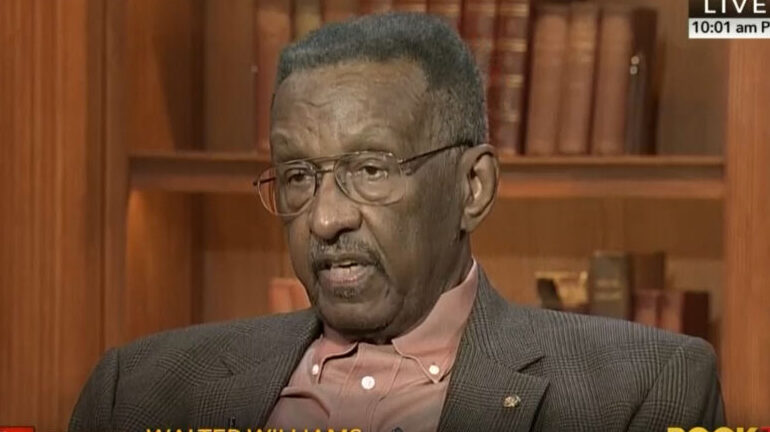Appreciation for Dr. Walter Williams: Statement of Dean Ann Ardis
I am truly saddened to report that our esteemed colleague, Dr. Walter E. Williams, has died.
Dr. Williams was 84 and still active on campus up until the time of his death, serving as the John M. Olin Distinguished Professor of Economics. He has been a prominent member of the faculty at George Mason University for four decades, serving our academic community admirably and with distinction as an economist, a scholar, the chairman of our Economics Department from 1995-2001, a noted author, a well-known radio host and a nationally syndicated columnist.
Dr. Williams’s body of work was remarkable, prolific and without question controversial. His principal scholarly research was devoted to studying the effects on minority groups of markets as well as of government policies, an important and complicated area of study. Walter examined it thoroughly and never shied away from tough conversations. Throughout his career, he routinely questioned conventional wisdom, eschewing emotion and politics and instead applied economic theory to make his case. It is also important to note that he was a terrific writer, one who had a gift for explaining complicated ideas to the broadest audiences.
To hear Dr. Don Boudreaux and Dr. Daniel Houser, chairman of Mason’s Economics Department, explain Walter’s gift as a writer perhaps states it best: “Walter’s long-running and very popular syndicated column might appear at first to be just another stream of words poured into the swollen river of punditry. But it’s not: nearly every column has the mark of a master economist, skillfully using economic reasoning to make important points about economic reality or public policy. These points often are the fruits of his research. That Walter is so beloved by legions of non-economists speaks not to his dumbing down of economics in order to attain popularity. Instead, it speaks to his unusual mastery of economics to make it accessible and relevant to ordinary men and women.”
It’s also fair to say that many people disagreed with him, and at times he was the recipient of fair criticism. Yet his work and his writings prompted many of us to think critically, even if the end result was an agreement to disagree. That is the foundation of higher education, and Dr. Williams left his mark, using his time, scholarship and wisdom to chart a unique and successful path. We will miss him and send our condolences to his family at this

